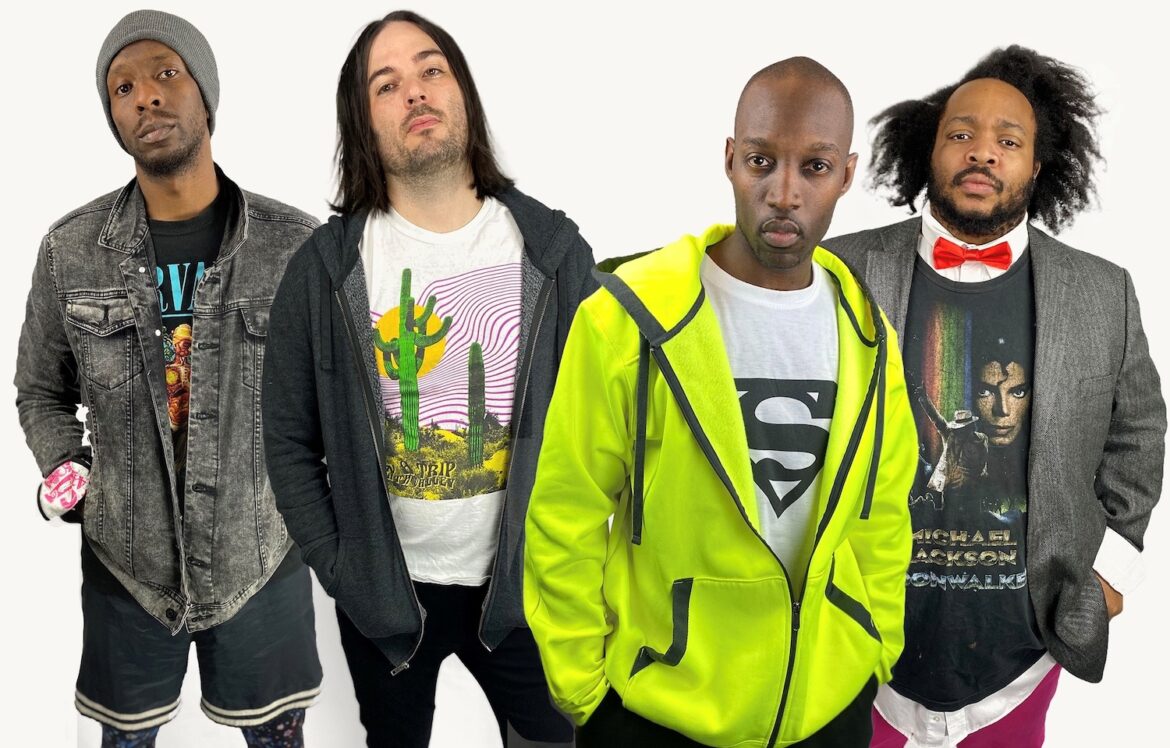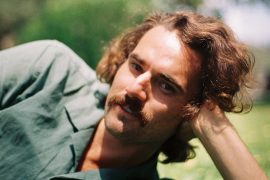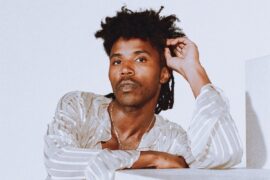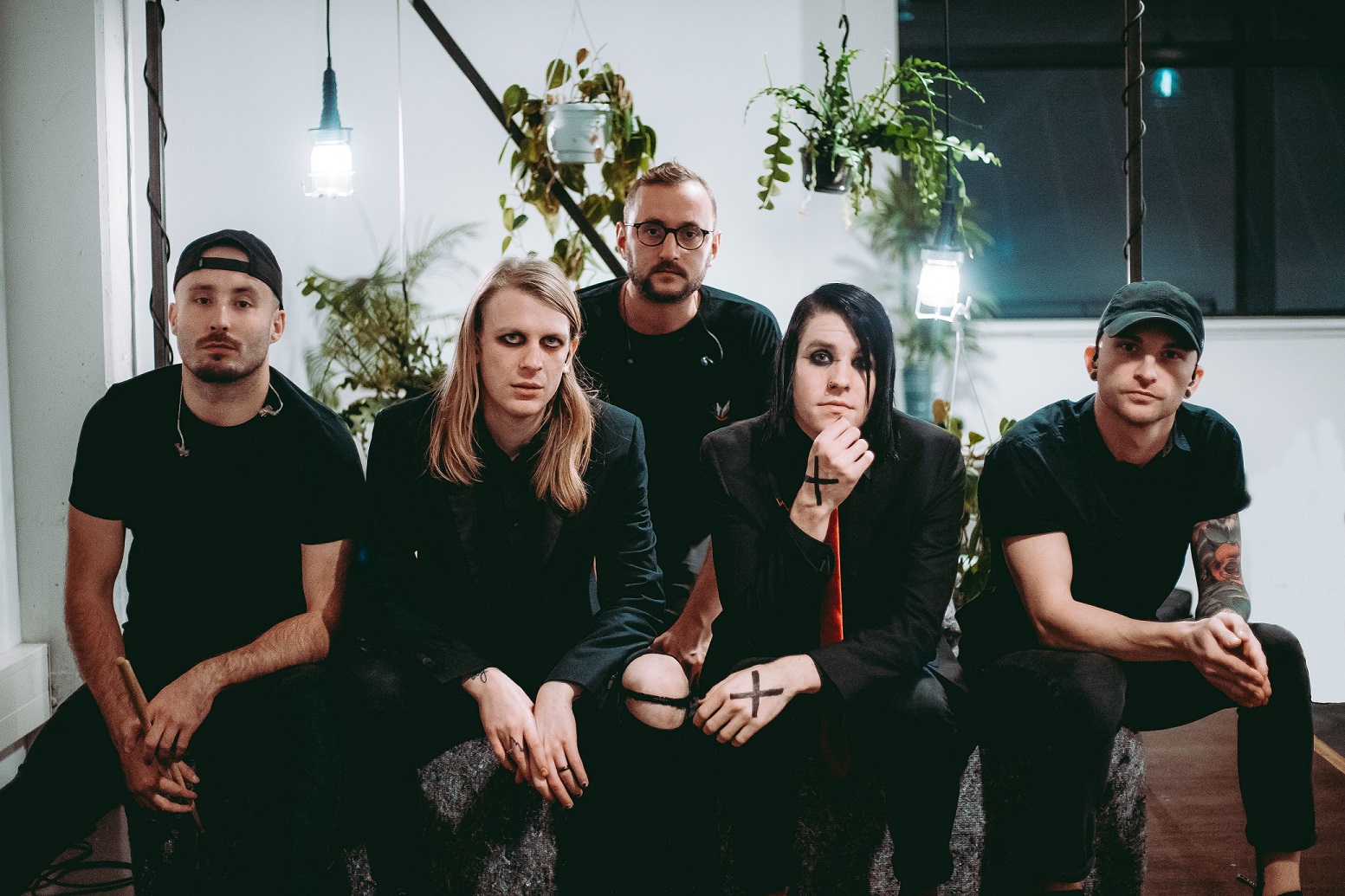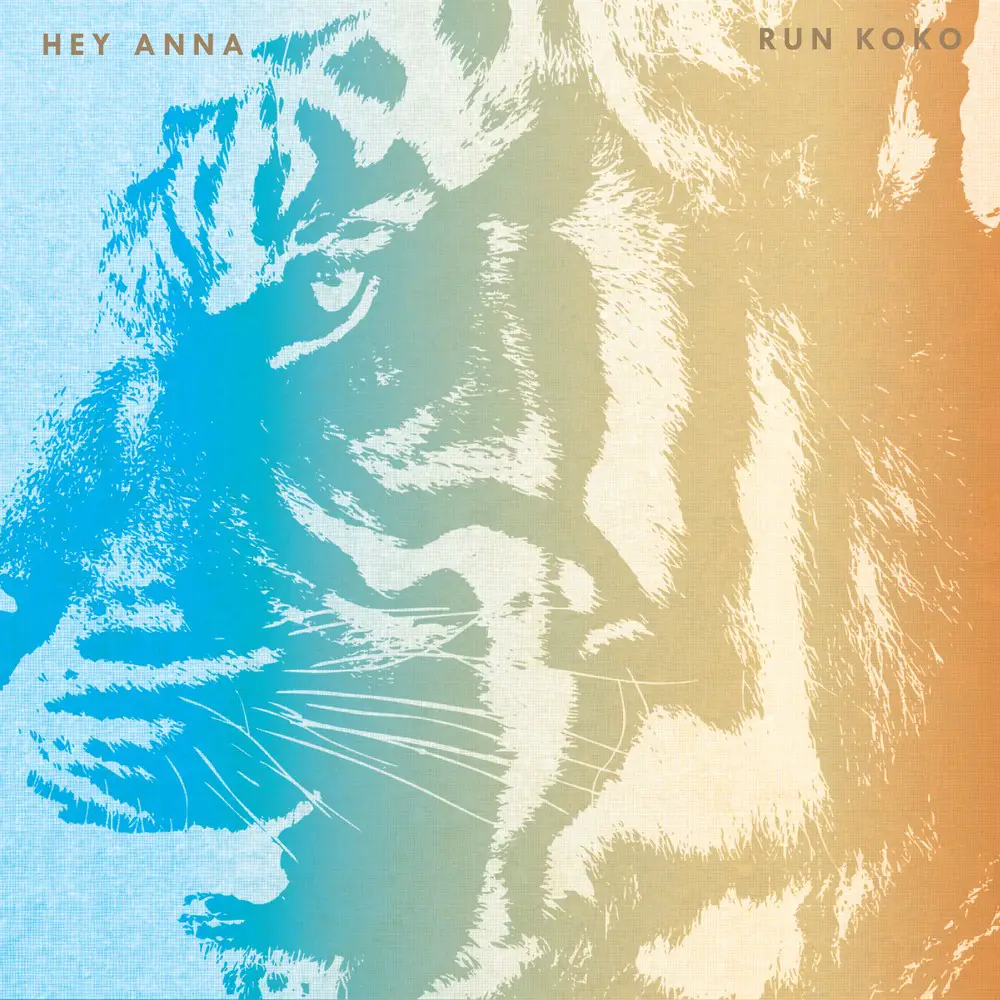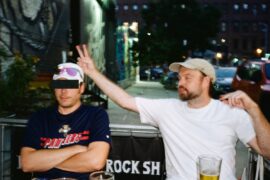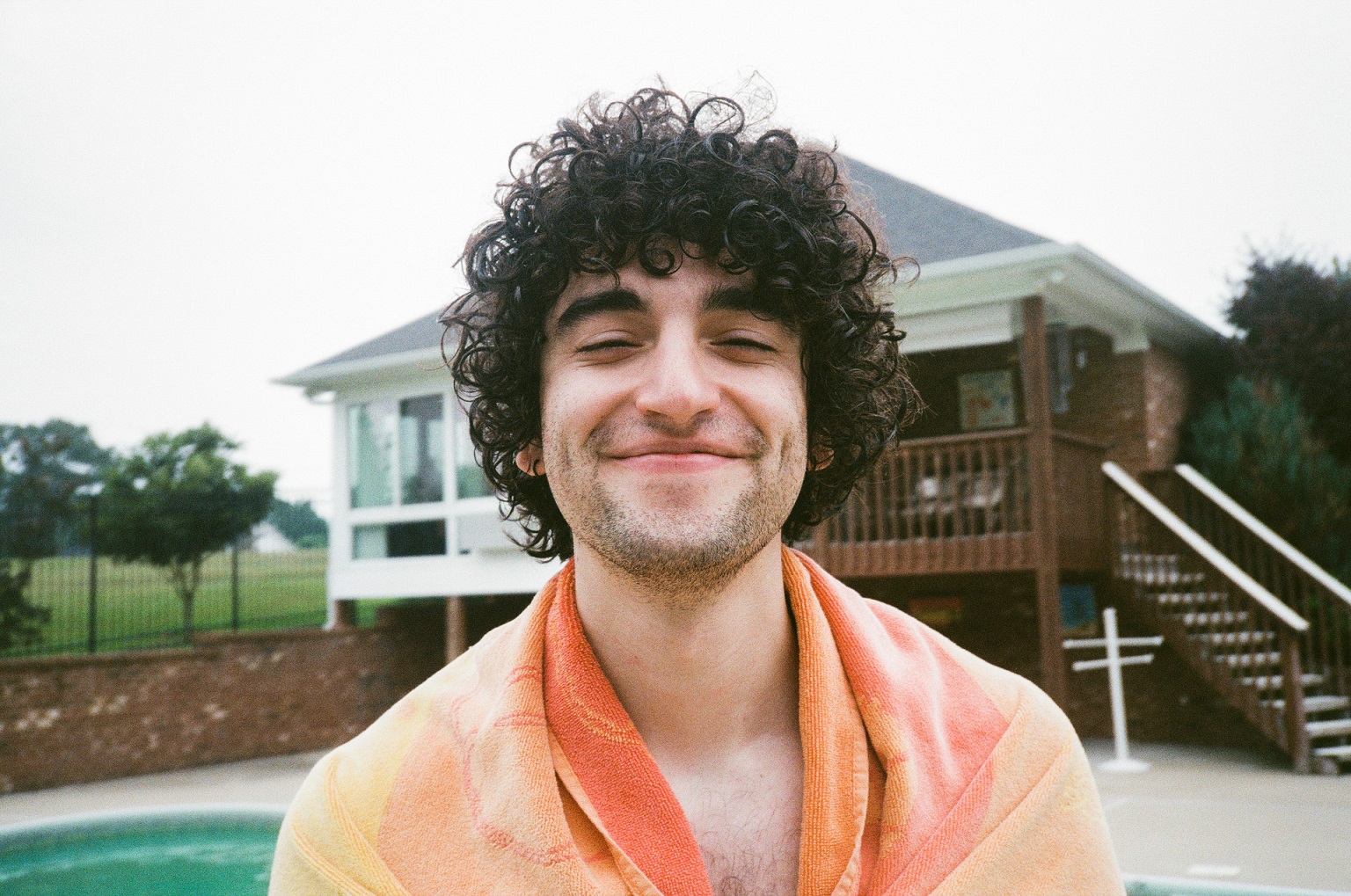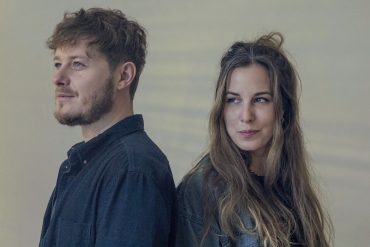In honor of Black History Month, Atwood Magazine has invited artists to participate in a series of essays reflecting on identity, music, culture, inclusion, and more.
•• •• •• ••
Today, Down North frontman and Black & Loud Fest co-founder Anthony Briscoe shares some hard-earned perspective in his essay, ‘The ‘So What’ Mentality: Reclaiming Black Art & Ownership,’ as a part of Atwood Magazine’s Black History Month series!
The music that Down North has laid to tape to date is driving, crisply executed, and tight as all get out. It is funky – but it would be wrong to call it funk. Strong pop melodicism anchors searing punk energy. Brash technical virtuosity nods to Alternative rock. Funky gospel metal, maybe? Regardless of what you call it, the bad’s music exudes its creators fierce focus and determination. It is powerful, defiantly celebratory, and downright captivating. No Retreat, No Return, No Surrender indeed.
Comprised of frontman Anthony Briscoe, bassist Brandon Storms, guitarist Nick Quiller, and drummer Conrad Real (who also plays with icons Digable Planets), Down North are a singular voice in the music space: Trailblazing creatives that pick and choose just-right bits and flavors drawn from the whole of modern Western music, like painters with unlimited palates. The band’s sophomore album No Restraint Volume 2 deals with the timeless subject of love, and is out now on all platforms.
•• ••
•• ••
THE ‘SO WHAT’ MENTALITY
Reclaiming Black Art & Ownership
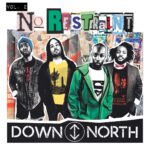
by Anthony Briscoe
As a Black artist, I’ve been reflecting on a growing trend in the music industry – one that I can’t ignore.
We create the culture, we set the trends, but too often, we don’t own what we build.
Back in the day, my grandfather’s generation had what they called a “so what” mentality. Yeah, the system was unfair. Yeah, racism made it harder for us to advance. But so what? If you wanted something badly enough, you figured out how to get it. It wasn’t about ignoring injustice—it was about outworking it, outthinking it, and winning despite it.
But today? I feel like we’ve lost some of that fight. We focus on barriers more than solutions. We wait for someone else to open doors instead of building our own. And in an industry where Black creativity fuels billion-dollar platforms, we still don’t own enough of our work, our influence, or our future.
We Built Social Media – And Barely Benefit from It.
Every major social media platform blew up because of Black creativity. Think about it.
- TikTok? Nobody was paying attention until Black artists made it pop. Lil Nas X went viral, and suddenly every artist wanted to jump on.
- Instagram? Blew up in part because of hip-hop culture and dance challenges.
- MySpace? Music pages, especially hip-hop and R&B, kept it alive.
- Even Facebook and Twitter? Black culture fuels engagement, whether it’s memes, viral moments, or the entire concept of “Black Twitter.”
We make these platforms valuable. Yet, instead of building our own, we keep giving our creativity away for free.
That’s why I’ve been watching Fanbase, a Black-owned social media platform created by Isaac Hayes III. It’s designed to compensate artists better. So why aren’t more Black creatives using it? Why do we keep making other people rich while fighting for scraps?
The Music Industry Is a Hustle – But Who’s Really Winning?
The music industry has always had middlemen profiting off Black talent. Contracts? MOB contracts. Some of the worst deals imaginable.
- In the U.S., when a song is played on the radio, only the publishers get paid—not the artist.
- That’s why artists like Beyoncé fight for publishing rights. People criticize her for demanding a cut even if she didn’t write the song, but can you blame her? The system is designed to cut artists out of their own success.
- Every decade, the industry finds a new way to exploit us—whether it’s 360 deals, unfair streaming payouts, or AI recreating our voices without compensation.
And yet, we keep signing away ownership. We keep trusting labels, platforms, and companies that don’t prioritize us. At what point do we stop waiting for a seat at the table and start building the house?
Make the Art, But Make It Move.
One thing my grandfather’s generation understood: talent isn’t enough—you have to be undeniable.
If you want to be heard, your music needs to hit first. Messages are important, but if the music isn’t great, people won’t care.
Look at Marvin Gaye’s “What’s Going On.” It’s a protest song, but first and foremost, it’s a great song. The melody, the production, the groove—it all makes you feel something.
Same with Rage Against the Machine. They had a message, but the music slapped. They weren’t just saying something—they were saying something over beats that made you move.
That’s the formula. If the music doesn’t connect, the message won’t either.
Ownership Over Access.
James Brown once said, “I don’t want nobody to give me nothing – just open the door, and I’ll get it myself.”
But today, why are we still waiting for doors to be opened when we can own the whole damn building?
We need to stop focusing on DEI initiatives and start being the executives, the investors, the shot-callers. After slavery and through Jim Crow, Black people became independent contractors because they had to. We had Black doctors, lawyers, and entire communities that thrived without outside approval.
That’s why I co-founded the Black & Loud Festival. I was tired of seeing Black musicians stuck in the background. If white artists wanted soulful backing vocals or the best musicians, they called us—but they rarely put us front and center.
Afropunk was a blueprint, but we also took inspiration from Warped Tour – a festival that showcased new artists across different genres. Because here’s the truth: Black people created most American music.
From country to rock to hip-hop to heavy metal, it all traces back to us. And we don’t need permission to reclaim it.
If Your Idea Doesn’t Help Others, It’s Too Small.
The most important point: Your success should lift others up.
Right now, we’re living in an era of self-indulgence. Everyone is focused on their own brand, their own bag, their own success. But if your idea can’t help at least 10 people, it’s not big enough.
- We once had Black Wall Street, where our money circulated ten times before leaving the community.
- Now, Black dollars leave our hands almost immediately.
- Churches are full, but how many pastors are teaching financial literacy?
- We push kids toward college but don’t teach them entrepreneurship, investing, or business lending.
We keep playing by the system’s rules instead of learning how the rich build generational wealth.
The “So What” Mindset Needs to Return.
Yes, there are obstacles. So what?
If we don’t take control – of our music, our platforms, our industries—we’re gonna be left behind. And at that point, we won’t be able to blame anybody but ourselves.
So the question is: Are we ready to take ownership? Or are we just going to keep making other people rich? – Anthony Briscoe
•• ••
:: connect with Anthony Briscoe here ::
•• ••
•• •• •• ••

Connect to Anthony Briscoe on
Instagram, Facebook
Connect to Down North on
Instagram, TikTok, X, Facebook
Discover new music on Atwood Magazine
📸 © courtesy of the artist
:: Stream Down North ::

